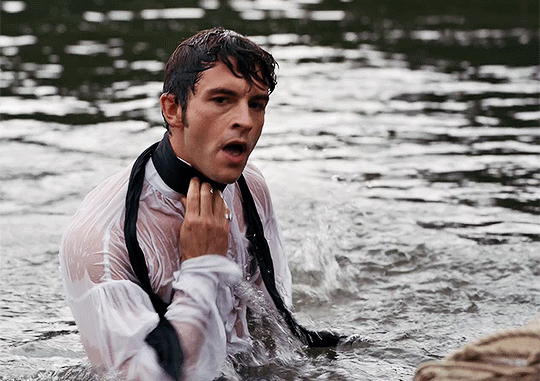
**Bridgerton Erred by Omitting Daphne and Simon from Season 3**
The Bridgerton series, an adaptation of Julia Quinn’s novels, has captivated audiences with its lush visuals, intricate storylines, and compelling characters. However, the decision to omit Daphne and Simon from Season 3 has left many fans feeling disappointed and questioning the direction of the show.
**A Missed Opportunity**
Daphne Bridgerton and Simon Basset, the Duke of Hastings, were the central figures of the first season. Their love story, filled with passion, misunderstandings, and eventual reconciliation, set the tone for the series. The chemistry between Phoebe Dynevor (Daphne) and Regé-Jean Page (Simon) was palpable, making their characters’ journey one of the most memorable aspects of the show.
By not including them in the third season, the series misses an opportunity to further develop their characters and explore the dynamics of their relationship post-marriage. Fans were eager to see how Daphne and Simon navigate the challenges of married life, especially given the societal pressures and personal demons they both face.
**The Importance of Continuity**
One of the strengths of long-running series is the continuity of characters and storylines. Viewers become invested in the lives of the characters and look forward to seeing their growth and development over time. By sidelining Daphne and Simon, Bridgerton risks losing the emotional connection that fans have built with these characters.
Moreover, their absence creates a noticeable gap in the narrative. While the focus of each season shifts to different members of the Bridgerton family, the interconnectedness of their stories is what makes the series compelling. Daphne and Simon’s continued presence would have provided a richer, more cohesive storyline.
**The Legacy of Austen**
Bridgerton owes a significant debt to Jane Austen’s works, particularly “Pride and Prejudice.” The series’ setting during the Regency era, its exploration of societal norms, and its focus on the female perspective are all reminiscent of Austen’s novels. The character of Simon Basset, with his brooding demeanor and eventual transformation through love, is a modern-day Mr. Darcy.
Austen’s influence is evident in the way Bridgerton centers the female gaze. The series prioritizes female desire and agency, a theme that Austen pioneered in her novels. By omitting Daphne and Simon, Bridgerton loses an opportunity to continue this exploration through their characters.
**The Female Gaze**
One of the most innovative aspects of Austen’s writing was her focus on the female perspective. In “Pride and Prejudice,” Elizabeth Bennet’s journey is not just about finding a suitable husband but about recognizing her own worth and desires. Similarly, Bridgerton’s first season centered on Daphne’s sexual awakening and her realization of her own desires.
The series’ visual storytelling, with close-ups of Simon’s physicality and lingering touches, emphasized the female gaze. This focus on female desire was a refreshing departure from the male-centric narratives often seen in period dramas. By sidelining Daphne and Simon, the series risks losing this unique perspective.
**The Impact on Fans**
The decision to omit Daphne and Simon has not gone unnoticed by fans. Social media is rife with discussions and debates about their absence. Many fans feel that their favorite characters have been unfairly sidelined and that the series has lost some of its original charm.
The chemistry between Daphne and Simon was a significant draw for viewers. Their love story resonated with many, and fans were eager to see how their relationship would evolve. By not including them in Season 3, the series risks alienating a portion of its fanbase.
**A Call for Balance**
While it is essential for the series to explore the stories of other Bridgerton family members, it is equally important to maintain a balance. The interconnectedness of the characters’ lives is what makes the series compelling. By sidelining key characters like Daphne and Simon, the series risks losing its narrative cohesion.
A more balanced approach would have allowed for the exploration of new storylines while still maintaining the continuity of existing ones. Daphne and Simon’s presence, even in a supporting capacity, would have enriched the overall narrative and provided a sense of continuity for viewers.
**Conclusion**
Bridgerton’s decision to omit Daphne and Simon from Season 3 is a significant misstep. Their love story was a cornerstone of the series, and their absence creates a noticeable gap in the narrative. By sidelining these characters, the series risks losing the emotional connection that fans have built with them.
The legacy of Austen’s works, the importance of the female gaze, and the interconnectedness of the characters’ lives are all crucial elements that make Bridgerton compelling. By not including Daphne and Simon, the series misses an opportunity to continue exploring these themes.
As the series moves forward, it is essential to strike a balance between introducing new storylines and maintaining the continuity of existing ones. Daphne and Simon’s presence would have provided a richer, more cohesive narrative, ensuring that the series remains as captivating as ever.
